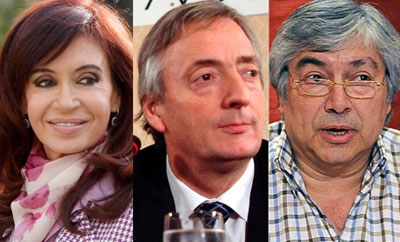The failure of Argentina’s government to provide important information for a money laundering investigation into an Argentine government linked contractor has apparently paralyzed proceedings in neighboring Uruguay, something that could be politically motivated.
Lazaro Baez has been under investigation in Argentina since April, when allegations emerged that he and late President Nestor Kirchner illegally benefitted from public money paid out that exceeded the cost of the public works they funded.
The pair have been accused of laundering the money using front companies and flying some of it to Uruguay, Panama and Switzerland.
An investigation was also opened in Uruguay regarding the use of the country as either a destination or transshipment point for the illicit funds, in a case including irregularities in the purchase of a ranch in Punta del Este by an accountant linked to Baez, reported Uruguayan newspaper El Pais.
However, the case has been put on hold, as Argentine officials have not supplied information requested by Uruguay. Argentine prosecutor Guillermo Marijuan claims the request never arrived. An investigation has been opened in Argentina to determine whether the foreign ministry is blocking the processing of the request.
In addition to money laundering, Baez is under investigation for claims he extorted a financier to sell him a financial company through which he laundered money. Authorities are also investigating him for tax evasion.
InSight Crime Analysis
Current President Christina Fernandez de Kirchner has lost a significant amount of public support since the scandal — known as “Ruta del dinero K” (Route of Kirchner’s money) — broke. She has been hurt by accusations from her late husband’s former secretary, who claimed bags of cash were delivered to the Kirchners’ homes and kept in vaults. Local media have also cited a video showing her leaving her husband’s mausoleum with Baez as evidence of the family’s close ties with the contractor.
Suspicions that the Argentine government is intentionally withholding information from Uruguayan officials could hold weight, given the highly politicized and sensationalized nature of the case. President Fernandez, in her few public mentions of the scandal, has dismissed it as a political attack aimed at reducing her support base in the face of approaching presidential elections, a claim that may also be grounded in some truth.

